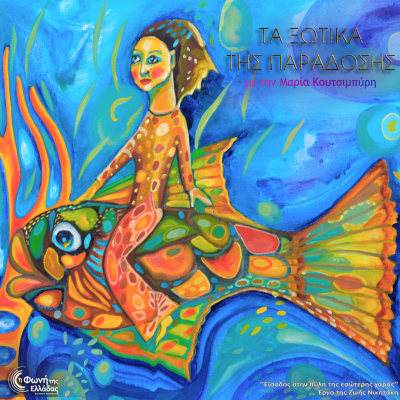On Wednesday, March 13th at 15:00, “The elves of tradition” hosted the leading performer from Thessaly and founding member of the Hellenic Music Archive, Mr Chrysostomos Mitropanos.
Chrysostomos Mitropanos was born in Kappa, where he lived until he finished the sixth grade high school in Fanari, Karditsa. He studied and collaborated for 11 years with Simon Karras, as well as at the Skalkottas Conservatory where he received his diploma from the School of Byzantine Music with honors from the hands of the late Lycourgos Angelopoulos.
He is a founding member of the Hellenic Music Archive, a tireless worker and participant in the Archive’s research and recordings in Athens and the countryside. For five decades he has been serving tradition in every way, either by organizing events or shows, or by singing. However, his most valuable contribution might be the transmission of his music to the younger generations and the thousands of students at the Experimental Music High School of Pallini. Many of them, in fact, are today well-known artists and they never cease to mention his name and the luck they had to learn from him the theory and practice of traditional music.
During his career, Chrysostomos Mitropanos has collaborated with the most important singers and musicians, as well as with young people whom he guided in their first steps for more than 15 years. He is the Director of the orchestra “Thria” of the Municipal Cultural Centre of Aspropyrgos with a strong artistic and pedagogical involvement. For three years he was in charge of the ERT2 program for traditional music. He also taught at the P. Zisis Foundation where he also participated in the Board of Directors. He directed the traditional choir of Agios Stefanos, Attica, the Lyceum Club of Greek Women, Rafina, etc. Apart from his personal albums with Thessalian songs, he participated in the recordings of the Hellenic Music Archive and in many other recordings, such as with Domna Samiou, the Workshop of Old Music, Anavasi, and more.
His interpretive singing skills are unparalleled. Particularly in the slow, ”sitting” songs, few can compare with him today, since his deep knowledge of Byzantine music helps him to keep exactly the particular musical intervals of the church sounds, bringing out the splendor of the traditional melody.
